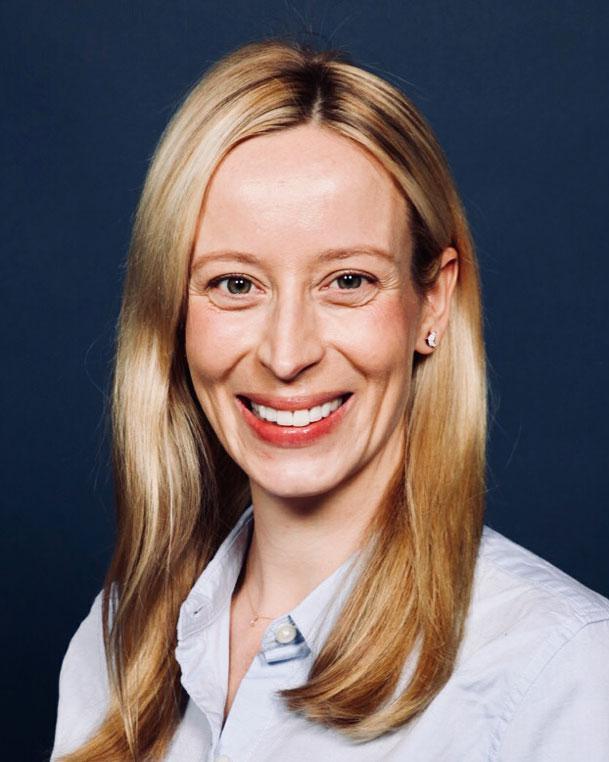Erikka Loftfield Selected as Earl Stadtman Investigator
, by DCEG Staff
Erikka Loftfield, Ph.D., M.P.H., was selected as an Earl Stadtman tenure-track investigator in the Metabolic Epidemiology Branch (MEB) in August 2020. Dr. Loftfield investigates the interplay between diet, metabolism, the microbiome and genetics and their effects on cancer and health. In her new role, Dr. Loftfield will develop an integrative research program that leverages emerging technologies to advance nutritional research to clarify diet-cancer associations and their underlying mechanisms.
Uncovering the contribution of diet to cancer risk has been a long-standing challenge to epidemiologists. Studies have established associations of alcohol, processed meat and obesity with increased risk of multiple types of cancer. In addition, other dietary exposures such as fiber and coffee have been linked with lower risk of some cancers. Despite advancements in the field, clear challenges remain in nutritional research, including difficulty measuring diet over the lifetime as well as the relative homogeneity of diet and lack of population diversity in existing studies. Dr. Loftfield aims to lead multidisciplinary studies and develop novel resources that address these challenges and build an evidence base for public health recommendations to prevent diet-related chronic disease.
To advance research on these fronts, Dr. Loftfield has conducted etiological studies on the role of coffee and disease. Coffee is one of the few dietary items consumed regularly by most U.S. adults. In 2016, Dr. Loftfield and collaborators published the first nationally representative estimate of coffee drinking in the U.S. 75% of adults reported drinking coffee and 49% reported daily consumption.
As a predoctoral fellow, Dr. Loftfield found that coffee drinking was associated with decreased mortality in the Prostate, Lung, Colon, and Ovary Cancer Screening Trial cohort. More recently as a research fellow, Dr. Loftfield expanded her studies to investigate the role of germline genetic variation on caffeine metabolism in the coffee drinking-mortality relationship. She found that coffee drinking was associated with lower mortality in both genetically defined fast- and slow-caffeine metabolizers. She also found that these inverse associations persisted among drinkers of ground, decaffeinated, and instant coffee but that the association for instant coffee was weaker. These findings provided reassurance to coffee drinkers and also suggested that compounds in coffee other than caffeine may explain why coffee is associated with lower risk of mortality in large prospective studies worldwide. To address the question of variation in bioactive compounds by coffee type, Dr. Loftfield designed a metabolomics study to evaluate how processing and preparation methods affect the chemical composition of a cup of coffee. She found that instant or freeze-dried coffee brews have higher levels of roasting products and lower levels of some antioxidants as compared with ground coffee brews. Currently, she is working to identify novel biomarkers of coffee intake and examine their role in cancer and mortality risk.
Dr. Loftfield also uses integrated omics analyses to explore the connections between the metabolome, microbiome, diet and obesity. She led a large untargeted metabolomics study in collaboration with researchers from the International Agency for Research on Cancer, that found higher relative levels of circulating bile acids were associated with a five-fold increased risk of liver cancer in the Alpha-Tocopherol, Beta-Carotene Cancer Prevention cohort. These findings serve as a foundation for her current targeted studies which are evaluating the association of microbial metabolites, including bile acids and short chain fatty acids, in liver and colorectal cancer risk.
Dr. Loftfield earned an M.P.H. in chronic disease epidemiology in 2012 and Ph.D. in public health in 2015 from Yale University. She joined DCEG in 2013 as a pre-doctoral fellow through the Yale University-NCI Partnership Training Program, became a postdoctoral fellow in 2015, and was promoted to research fellow in 2016.
